
What's your thought?

Awesome! 5X begins here!
Please enter your details

"That’s disappointing, but understood."
Feel free to reach out when you're ready to grow.
Supercharge Your Hospitality Impact
Transforming Hospitality with Tailored Digital Marketing Solutions
Discover How SySpree Can Elevate Your Brand - Contact Us Today!
Trusted by 1,000+ Brands as their preferred Digital Marketing agency in Mumbai. Chosen for One Reason: Results.










STRUGGLING TO STAND OUT IN A CROWDED MARKETPLACE?
Unlock Your Hospitality Business’s Full Potential
Striving for visibility and engagement in the competitive hospitality sector can be overwhelming. Without the guidance of a specialised Digital Marketing Agency for the Hospitality Industry, your business risks falling behind as others capture your market share. The hospitality space moves fast, and without an optimised digital presence, your unique offerings might go unnoticed.
Low engagement, inconsistent branding, and outdated strategies can severely impact your growth. As a leading Digital Marketing Company for the Hospitality Industry, we help you rise above the noise with tailored solutions that reflect your brand’s strengths.
It’s time to leave behind ineffective efforts and embrace powerful Digital Marketing Services for the Hospitality Industry. Let the Best Digital Marketing Agency for the Hospitality Industry drive visibility, enhance engagement, and unlock your full potential.
Overcome These Challenges Now!
Visibility Issues
Struggle to reach potential clients?
Poor Engagement
Low online interaction impacting bookings?
Unclear Branding
Is your unique value getting lost?
Ineffective Strategies
Are outdated methods stalling growth?
Your Path to Hospitality Success
Elevate Your Brand with Customized Strategies
Our CORE Framework is designed to transform your hospitality business with precision. We Consult to understand your unique needs, Optimize to enhance your online presence, Reinforce strategies to maintain momentum, and Excel by driving sustainable growth. SySpree’s experts harness cutting-edge digital marketing tactics to ensure your brand doesn’t just compete but leads.

Consult
Personalized strategies tailored to your objectives.

Optimize
Fine-tuning every digital touchpoint for maximum impact.

Reinforce
Continuous support to solidify brand presence.

Excel
Driving your business to new heights of success.

Consult
Understand your unique business needs.

Optimize
Enhance functionality with innovative solutions.

Reinforce
Maintain peak performance and security.

Excel
Achieve and surpass your business objectives.

Optimize
Precision in aligning and maximizing your systems.

Consult
Expert guidance tailored to your specific goals.

Reinforce
Ensuring stability and trust in every integration.

Excel
Achieving superior results and competitive advantages.
Testimonials
What Our Clients Achieved with Us



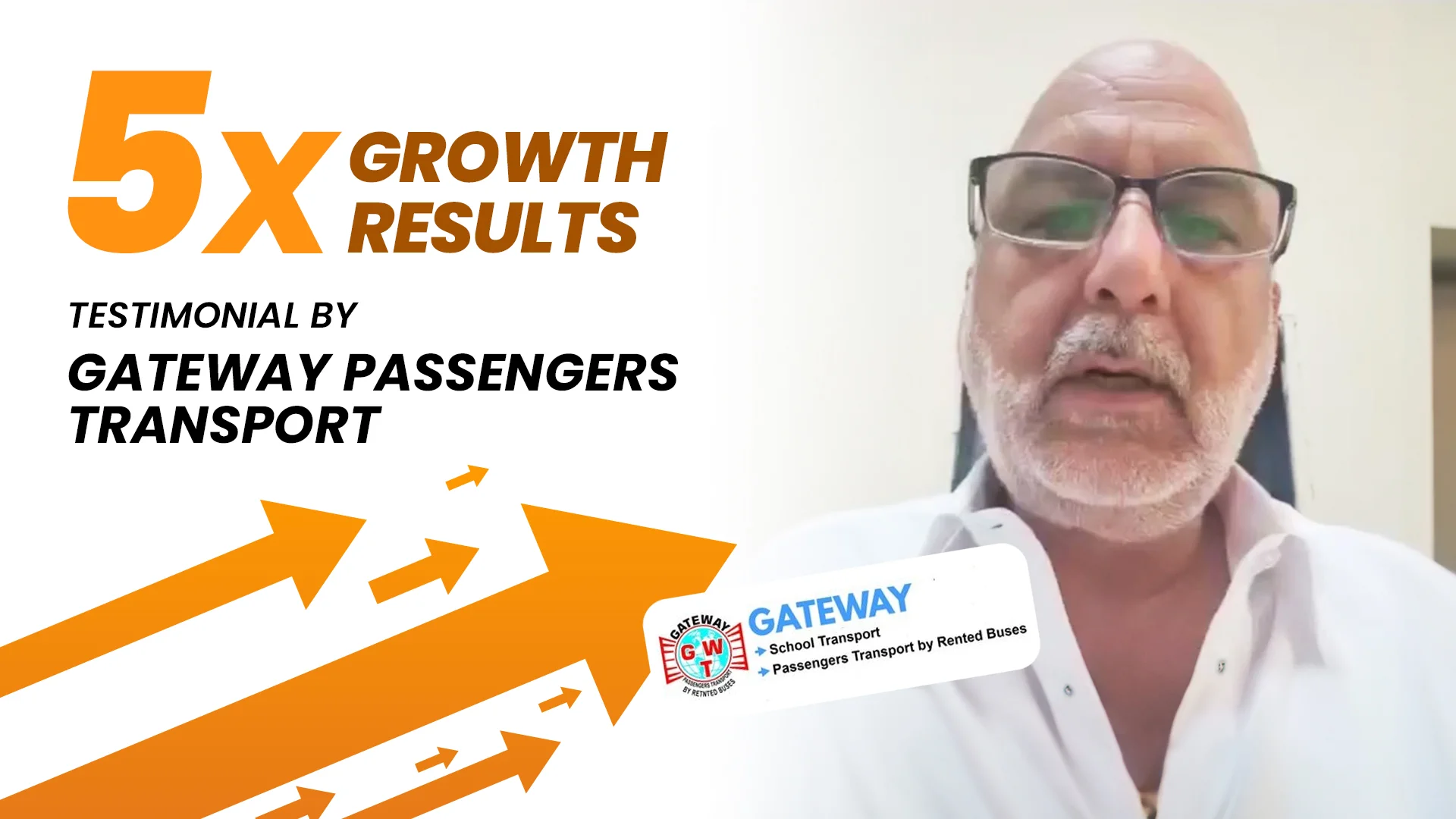

Our Capabilities
Tailored Hospitality Digital Marketing Solutions
SEO Optimization
Elevate your search rankings and visibility.
Content Creation
Engaging content that tells your unique story.
Social Media Management
Build a thriving community of loyal customers.
PPC Campaigns
Direct targeting for immediate results.
Email Marketing
Helps you reach customers directly and boost engagement.
Websites That Deliver Real Results
Success Stories That Inspire Confidence
From doubling conversions to reducing bounce rates, Syspree’s websites consistently deliver results. Check out our case studies for in-depth stories of businesses like yours achieving success.
Tailored Designs for Your Unique Needs
Solutions for Every Industry
Our Global Presence
Countries We are Present In

Fueling Growth Through Data Excellence
Proven Success in Numbers
OUR LEADERSHIP


Our leadership ensures Syspree delivers innovation and measurable results through expert website design and development strategies.
OUR TEAM























Our skilled team combines creativity with precision, building websites that deliver exceptional user experiences and business results
CASE STUDIES
Proven Results Across Industries
Explore how Syspree has helped businesses across industries achieve measurable growth with tailored digital marketing and web development strategies. From e-commerce to tech startups, our custom solutions deliver proven results that drive revenue, improve customer acquisition, and enhance brand visibility
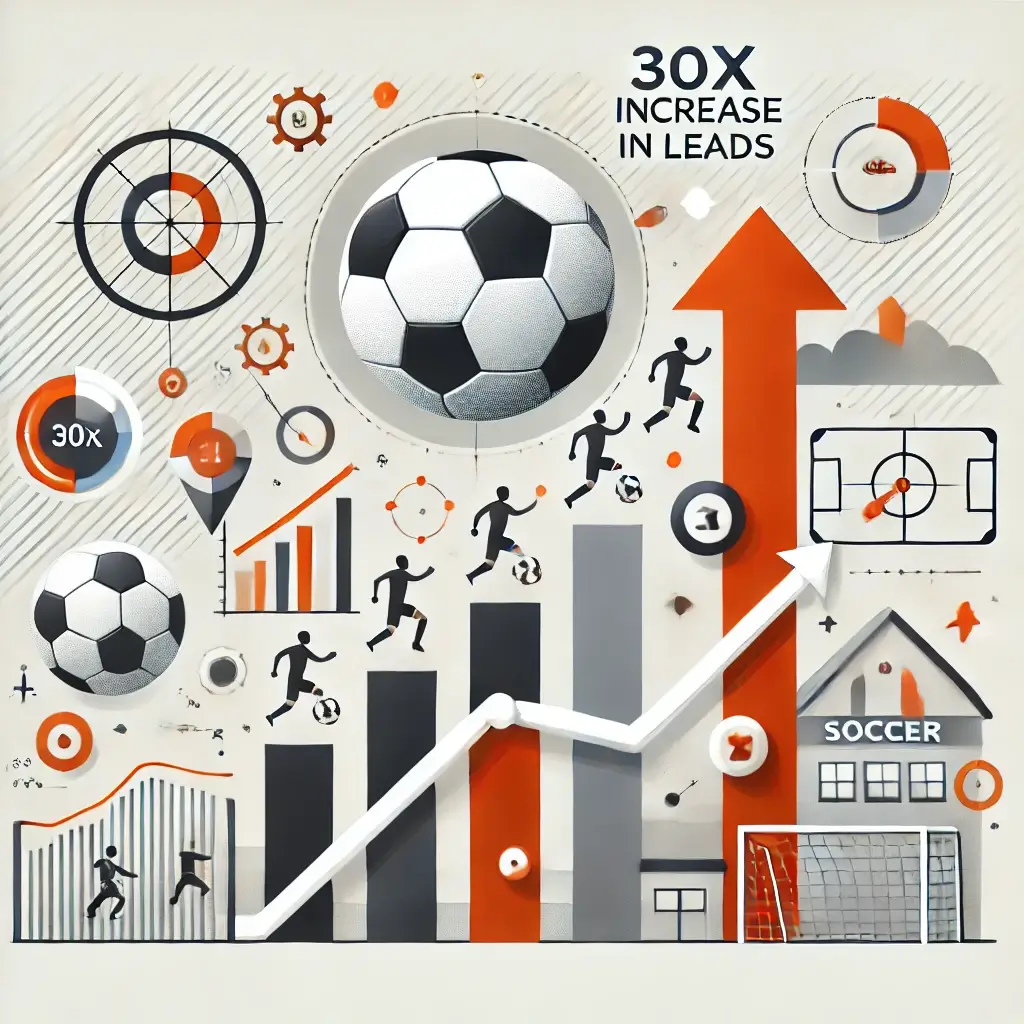
CASE STUDIES
30 Times Surge in Leads within a year
Sports Coaching Company

CASE STUDIES
Astounding 800% Increase in FMCG Distributor’s Web Traffic in Just 13 Months!
FMCG Distributors
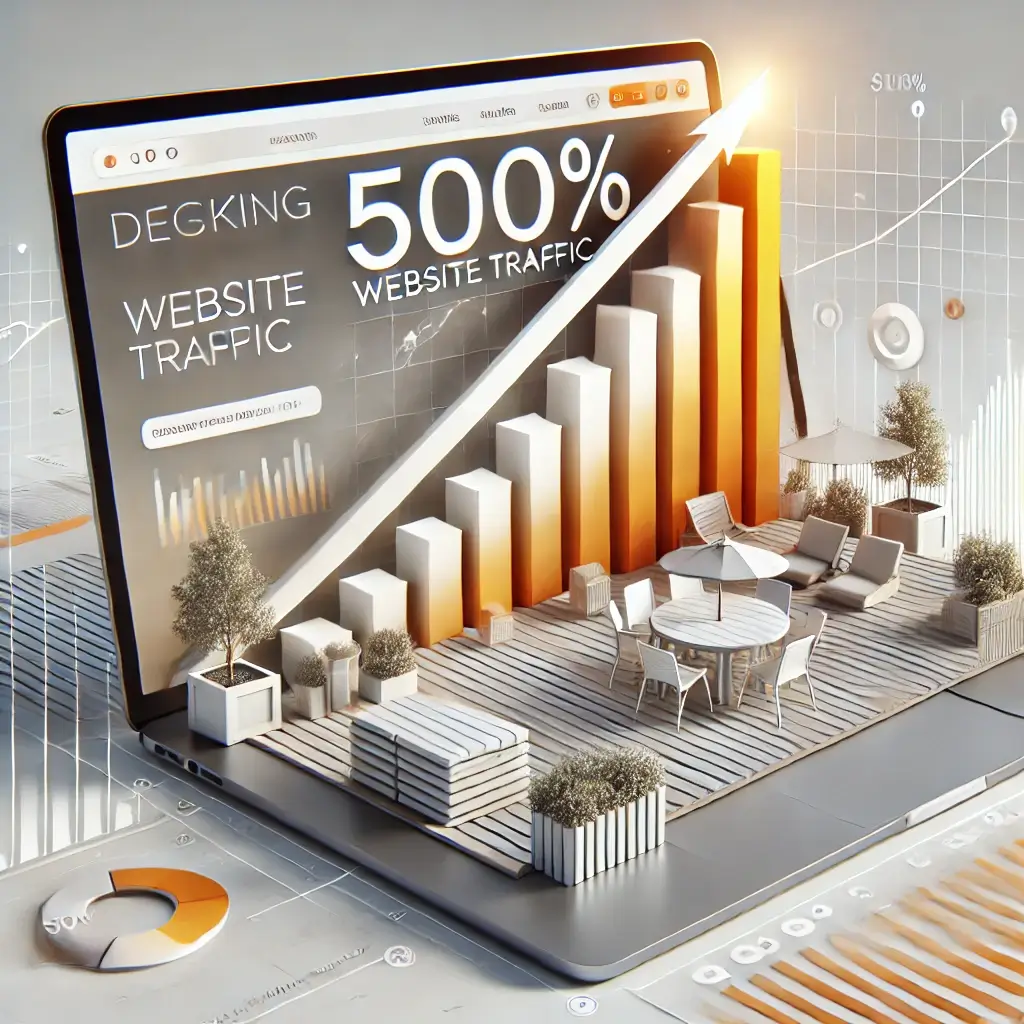
CASE STUDIES
500% Traffic boost in only 6 months
DECKING AND PATIO COMPANY
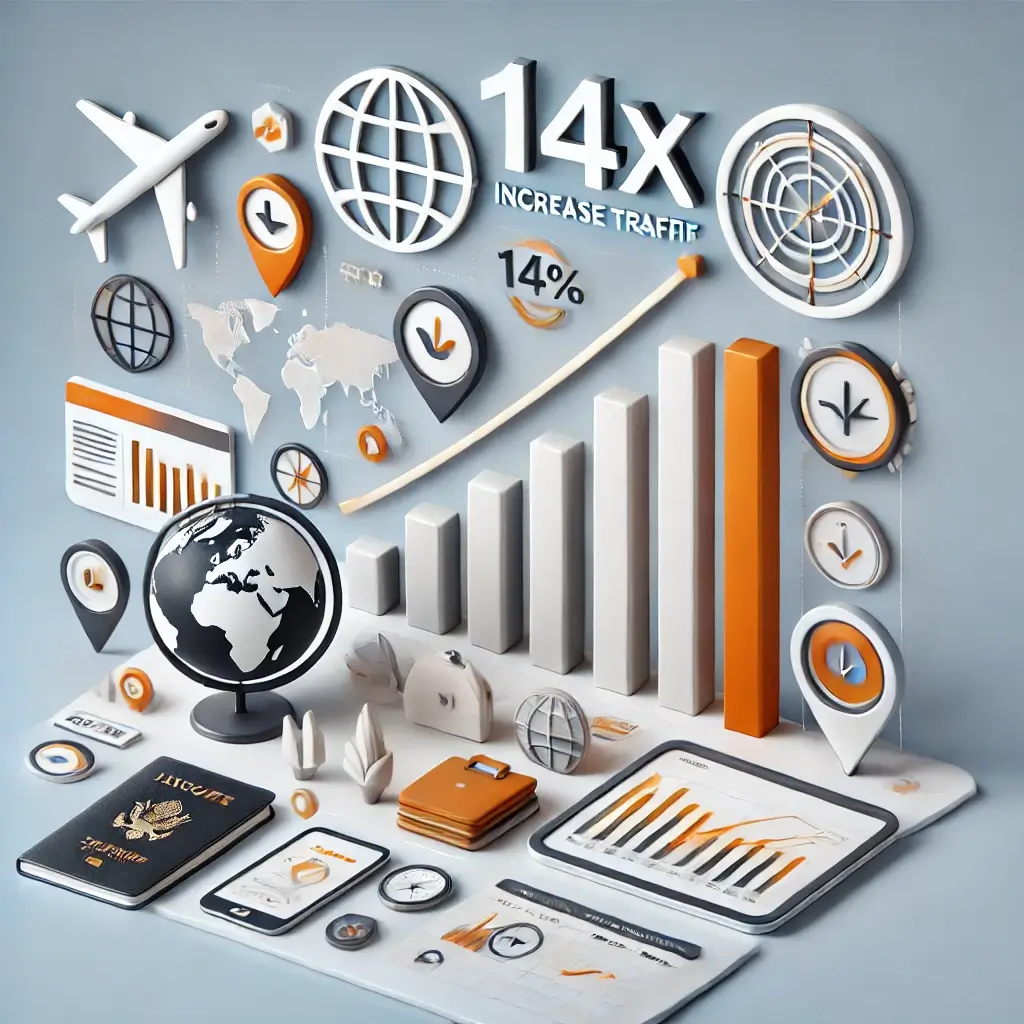
CASE STUDIES
Improve Your Traffic by 1400% In Just 2 months!
Immigration Company

CASE STUDIES
900% Traffic Surge in Just 1.5 Years
Holistic Lifestyle
e-commerce
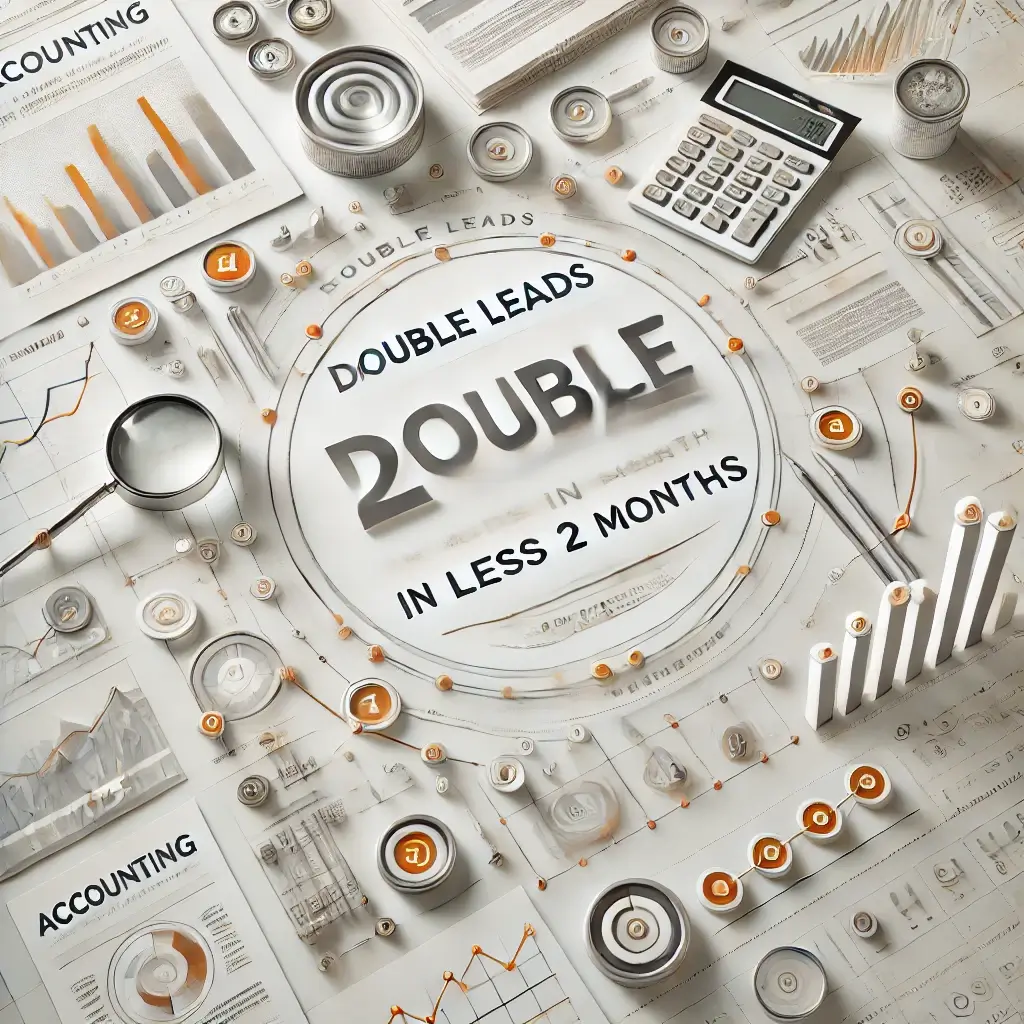
CASE STUDIES
Double Leads for Accounting company in just 2 months
Accountants and corporate services
OUR EXPERTISE, YOUR KNOWLEDGE
Blogs, Podcasts,Vlogs

Leveraging Social Media for Hospitality Success
Let’s Make Your Vision a Reality
Unlock Your Business Potential with Sypree
FAQ
Your Hospitality Digital Marketing Questions Answered
In today’s hyper-competitive hospitality landscape, boutique hotels and luxury stays are often in direct competition with massive hotel chains that have global recognition, deep pockets, and wide-reaching resources. Yet, many travellers actively seek out unique, personalised, and memorable experiences — which is exactly where boutique and luxury properties can shine. The key to unlocking this advantage lies in creating a professional, high-performing website that doesn’t just inform — it inspires, converts, and captivates.
A well-crafted website serves as your digital storefront
And for boutique hotels and luxury stays, this isn’t just about showcasing rooms or amenities — it’s about storytelling, trust-building, and making an emotional connection. This is where the expertise of a top-tier Digital Marketing Agency for Hospitality Industry becomes indispensable.
Creating an Identity That Resonates
Large hotel chains often rely on brand consistency and loyalty programs. Boutique hotels, on the other hand, thrive by offering distinct personality, design, and local experiences. A professional website should highlight these unique selling points (USPs) right from the homepage.
A leading Digital Marketing Company for Hospitality Industry will focus on reflecting your brand’s ethos — whether it’s heritage, sustainability, exclusivity, or artful design — in every pixel and line of copy. Visual design, tone of voice, and layout must align with your brand values to create an immersive online identity that resonates with your niche audience.
For example, a coastal eco-luxury retreat might feature soft earth tones, immersive storytelling sections about sustainability efforts, and locally inspired typography. These subtle details immediately communicate exclusivity and thoughtfulness — two traits that many boutique hotel seekers value.
Personalisation is Power
Unlike standardised chain hotels, boutique stays often offer curated guest experiences, local partnerships, or in-room customisations. A professional website should allow potential guests to visualise and customise their stay before booking.
A skilled Digital Marketing Services for Hospitality Industry provider integrates dynamic website features like personalised itineraries, room selectors based on guest preferences, and even immersive virtual room tours. These tools empower users to feel in control while also giving the impression of tailored service — a critical differentiator from chain hotels that tend to offer uniform experiences.
Visual Storytelling That Builds Desire
Guests looking for luxury or boutique stays aren’t just shopping for a room — they’re shopping for a feeling, a mood, and an experience. This is where visual storytelling plays a powerful role.
With the help of the Best Digital Marketing Agency for Hospitality Industry, your website should showcase high-quality imagery, cinematic videos, and guest testimonials embedded within an interactive journey. Each scroll should evoke emotions and create desire — whether that’s tranquility, indulgence, romance, or cultural immersion.
Using slow-scroll animations, parallax visuals, and well-placed call-to-actions, a professional website design makes guests feel as though they’ve already stepped into your world before clicking “Book Now.”
Mobile-First, Always
According to recent industry reports, over 70% of users now research travel and accommodation on their phones. A boutique hotel’s digital presence must be optimised for mobile — not as an afterthought but as a primary design focus.
A professional Digital Marketing Agency for Hospitality Industry ensures that mobile users have a frictionless experience — fast load times, tap-friendly buttons, easy navigation, and simplified booking flows. This is particularly important for luxury travellers who are often browsing while on the move or during travel downtime.
Google’s mobile-first indexing also means that if your mobile experience is poor, your site could be penalised in search rankings — making mobile optimisation essential not only for user experience but also for SEO.
SEO That Targets Your Ideal Guest
Large hotel chains dominate generic search terms like “hotel in London” or “resort in Goa.” But boutique hotels can outperform them in local, experience-specific, and niche keyword categories.
With the help of a smart Digital Marketing Company for Hospitality Industry, your website can be optimised for high-intent, long-tail keywords such as “romantic eco-resort in North Goa” or “boutique art hotel in Shoreditch.”
A professional website built with SEO at its core — proper metadata, schema markup, page speed optimisation, and content depth — ensures your property ranks well for relevant searches and drives targeted traffic that converts.
Integrated Booking for Seamless Conversions
Many boutique hotels lose potential guests by relying on clunky third-party booking platforms. A professional website integrates a seamless, mobile-friendly booking engine that’s designed to convert browsers into bookings with minimal friction.
A leading Digital Marketing Services for Hospitality Industry provider knows how to reduce drop-offs at the booking stage using psychology-backed UX design. Features like urgency messaging (“Only 2 suites left!”), trust indicators (secure payment icons, verified reviews), and simplified checkout flow can dramatically increase direct bookings and reduce OTA dependency.
Trust & Social Proof
Luxury travellers want to feel confident in their choice. A professional website uses trust signals strategically — awards, media mentions, influencer endorsements, guest video testimonials, and TripAdvisor integrations — to build credibility.
The Best Digital Marketing Agency for Hospitality Industry knows how to strategically place these elements without overwhelming users. The goal is to reassure guests that your boutique hotel or luxury property is reputable, safe, and loved by others who share their tastes.
Content Marketing That Inspires & Informs
Blog sections, travel guides, and cultural content turn your website into more than just a booking platform. It becomes a destination in itself — and a powerful SEO asset.
With the support of a Digital Marketing Company for Hospitality Industry, your website can host engaging, keyword-optimised content that appeals to both search engines and readers. Topics like “Top 10 Hidden Gems in Your Area” or “Luxury Travel Tips for Couples” provide value to potential guests and keep them coming back to your brand even after their stay.
Analytics & Continuous Optimisation
Professional websites aren’t static — they’re living ecosystems. A good Digital Marketing Agency for Hospitality Industry will install tracking tools like Google Analytics, Hotjar, and CRM integrations to monitor user behavior, booking patterns, and drop-off points.
This data fuels continuous improvement. Whether it’s A/B testing a new CTA, reworking page layout for higher conversions, or refining SEO for emerging search trends, a well-optimised site becomes smarter and more effective over time.
Conclusion: Standing Tall in a Sea of Giants
While large hotel chains have the advantage of scale, boutique hotels and luxury stays win through authenticity, attention to detail, and deeply personal guest experiences. A professionally designed website is the most powerful way to amplify these qualities in the digital world.
With the strategic partnership of the Best Digital Marketing Agency for Hospitality Industry, your brand can carve out a distinctive presence, attract high-value guests, and drive direct bookings — all while telling a story that no chain hotel can match.
Invest in a website that does more than look good. Invest in one that performs, persuades, and positions you exactly where you deserve to be — ahead of the curve.
In the competitive hospitality space, a visually appealing website alone is not enough. Modern travellers expect speed, convenience, and personalisation at every digital touchpoint — especially when booking a stay. That’s why forward-thinking boutique hotels and luxury properties are embracing custom web development that includes integrated booking systems and CRM tools. These elements don’t just streamline operations; they elevate guest experiences and boost revenue.
When implemented strategically, this integration bridges the gap between marketing and operations, helping hospitality businesses convert interest into confirmed bookings more efficiently. Partnering with a leading Digital Marketing Agency for Hospitality Industry ensures these systems are not only functional, but also aligned with guest expectations, brand positioning, and SEO performance.
Why Integration Matters in the Hospitality Industry
Most boutique hotels and independent resorts don’t have the luxury of enterprise-level booking infrastructure. However, by working with a specialised Digital Marketing Company for Hospitality Industry, they can adopt smart, scalable solutions tailored to their needs.
An integrated website connects your booking engine, CRM, and front-desk operations into one seamless workflow. This ensures:
Fewer booking errors and overbookings
Personalised pre- and post-stay communication
Guest loyalty tracking
Data collection for better marketing campaigns
Reduced dependency on third-party OTAs
In short, integration isn’t just technical convenience—it’s a competitive edge.
The Role of a Professional Booking Engine
The booking engine is the heart of a hospitality website. Without it, your guests must navigate away to complete a booking—often leading to drop-offs or distractions.
A Digital Marketing Services for Hospitality Industry provider integrates a responsive, mobile-friendly booking system directly into your website. Key features include:
Real-time availability and pricing
Room upgrades and add-ons at checkout
Multi-language and multi-currency options
Promo code integration
Payment gateway security
A modern booking engine streamlines the guest experience from discovery to confirmation — reducing friction and increasing conversions.
Why a CRM is Essential for Boutique and Luxury Properties
Customer Relationship Management (CRM) systems help hotels build and maintain meaningful relationships with their guests. For boutique hotels and luxury stays that rely heavily on repeat business and word-of-mouth, CRM integration is crucial.
The Best Digital Marketing Agency for Hospitality Industry will help you implement a CRM that tracks guest preferences, booking history, spending behaviour, and communication history. This enables:
Personalised welcome messages
Custom offers for returning guests
Special occasion reminders
Automated follow-up emails
Loyalty program management
This level of service makes boutique and luxury brands stand out from large, impersonal hotel chains.
How Integration Works in Custom Hospitality Web Development
When working with a skilled Digital Marketing Company for Hospitality Industry, integration is never an afterthought — it’s a foundational part of custom website development. Here’s how it typically unfolds:
1. Platform Selection & API Readiness
Choose booking and CRM platforms that are API-friendly. Your web development partner ensures the platforms you use can communicate with your CMS (WordPress, Webflow, custom PHP, etc.) through secure, well-documented APIs.
2. Front-End Alignment
The booking engine’s UI/UX is customised to match your site’s brand style and design language, making it feel native rather than bolted on. A good Digital Marketing Agency for Hospitality Industry will test for mobile responsiveness and usability across all devices.
3. Data Synchronisation
The CRM syncs with the booking engine and website forms to capture guest data — name, contact details, preferences, past stays — and stores it in a structured, GDPR-compliant way.
4. Automation Setup
Automated email sequences can be triggered by guest actions: confirmation emails, post-checkout reviews, upsell offers before arrival, and loyalty promotions after departure.
5. Testing & Optimisation
All systems are thoroughly tested under real-world conditions. Booking flow, email delivery, segmentation, and analytics are reviewed to ensure smooth performance.
Benefits of Booking & CRM Integration
Improved Conversion Rates
A seamless booking experience increases the likelihood that users will complete their reservations without hesitation or confusion.
Higher Guest Satisfaction
Personalised communication before, during, and after their stay makes guests feel cared for — a major win for luxury brands.
Increased Direct Bookings
An integrated system paired with smart SEO from a Digital Marketing Services for Hospitality Industry expert can reduce OTA commissions by encouraging more direct website bookings.
Data-Driven Marketing
With CRM data, you can launch targeted campaigns — honeymooners, weekend travelers, or wellness seekers — based on actual guest behaviour, not assumptions.
Faster Staff Response Time
Your team can access guest data, past interactions, and booking status in one dashboard, helping them deliver exceptional service.
Real-World Example: The Boutique Hotel Advantage
Imagine a luxury heritage hotel in Rajasthan that integrates a custom booking engine with Zoho CRM. A guest searching for a royal-themed honeymoon suite books directly via the site. The CRM logs the guest’s anniversary date and sends a personalised message the following year with an exclusive return offer.
This guest, impressed by the level of personalisation, returns and refers two more couples. Multiply this by dozens or hundreds of guests — and you begin to see the power of integration, guided by a Digital Marketing Agency for Hospitality Industry that understands both tech and emotion.
Common Integration Mistakes to Avoid
Using outdated booking plugins that aren’t mobile-friendly or SEO-compliant
Failing to sync CRM with booking systems, leading to duplicated or lost data
Ignoring GDPR and email marketing rules, risking compliance issues
Clunky UI that frustrates users and leads to high bounce rates
Not tracking conversions via Google Analytics or CRM reports
With expert oversight from the Best Digital Marketing Agency for Hospitality Industry, these pitfalls are easily avoided.
Future Trends in Integration
In 2025 and beyond, we can expect CRM and booking systems to become even smarter with AI-powered automation:
Chatbots that suggest rooms based on user behaviour
Dynamic pricing tools that adjust based on demand
Predictive analytics that flag high-value guests
Integrated loyalty apps tied to your CRM
Staying ahead of these trends means aligning with a Digital Marketing Company for Hospitality Industry that keeps pace with both technology and travel consumer behaviour.
Final Thoughts: Powering Growth Through Smart Integration
For boutique and luxury hospitality brands, integrated booking systems and CRM tools are not optional—they’re essential. They bring order to operations, insight to marketing, and delight to guest experiences.
But technology alone isn’t enough. You need a partner who understands how to implement these systems within the broader context of branding, user experience, SEO, and business growth. That’s where the Best Digital Marketing Agency for Hospitality Industry delivers real value.
From the first web visit to the final thank-you email, your digital ecosystem should make guests feel valued, understood, and eager to return. And it all begins with a website built for performance, powered by integration, and optimised for results.
In the digital-first era of travel planning, your website is more than just a brochure — it’s a revenue engine. For boutique hotels, luxury resorts, and unique hospitality brands, a well-designed website can mean the difference between a full booking calendar and missed opportunities. But not all websites are created equal. Partnering with a specialized web design company for the hospitality industry—especially one that doubles as a Digital Marketing Agency for Hospitality Industry—can dramatically enhance your online booking rates and maximise revenue.
Let’s explore how expert-led hospitality web design goes beyond aesthetics to directly influence bookings, guest satisfaction, and brand growth.
1. User Experience (UX) Tailored to the Hospitality Customer Journey
Generic websites often fail to address how travellers interact with hotel sites. A specialised Digital Marketing Company for Hospitality Industry understands the psychology behind how users browse, compare, and make booking decisions.
By mapping the guest journey — from landing on the homepage to confirming a reservation — expert designers ensure the experience is intuitive, mobile-friendly, and emotionally persuasive. Key UX enhancements include:
Clear navigation with minimal steps to booking
Room filtering based on guest needs (e.g., family, couple, business)
Prominent “Book Now” buttons that follow the scroll
Live chat support and chatbot integrations
Sticky menus for quick access to rooms, amenities, and offers
All of this leads to a smoother journey and fewer drop-offs — increasing booking conversion rates significantly.
2. Strategic Visual Storytelling That Sells
A specialised web design company builds sites that don’t just show rooms — they sell experiences. Through high-quality imagery, interactive virtual tours, and engaging video content, they highlight your property’s atmosphere, location, and uniqueness.
The Best Digital Marketing Agency for Hospitality Industry knows how to use visuals not just decoratively, but strategically:
Hero banners that evoke emotion
Image carousels showcasing amenities, spas, dining
Video headers that immerse users in the experience
Guest-generated content for authenticity
Visual storytelling builds trust and helps guests visualise themselves at your property — a critical factor in decision-making.
3. Seamless Integration with Booking Engines
What’s the use of a beautiful website if it leads users to a clunky third-party platform to book? A top-tier Digital Marketing Services for Hospitality Industry provider ensures your booking engine is smoothly integrated into your site — with minimal disruption and maximum usability.
This includes:
Real-time availability calendars
Secure payment gateways
Mobile-first design for tap-friendly interaction
Promo code functionality and upsell offers
Abandoned booking follow-up triggers
With the booking engine fully aligned to the design, there’s no friction. Guests stay within your branded environment, leading to more direct, commission-free bookings.
4. Mobile-First Design for Today’s Travellers
Over 70% of travel searches happen on mobile devices. A specialised Digital Marketing Agency for Hospitality Industry ensures your site is mobile-optimised from the ground up.
This means:
Fast-loading pages (under 3 seconds)
Tap-friendly buttons
Streamlined booking flows
Scrollable galleries and room info
Mobile-specific CTAs and lead capture forms
With Google’s mobile-first indexing, mobile design also impacts your search engine ranking — so it’s not just about UX, it’s vital for SEO.
5. Local and Experience-Based SEO Strategy
Hospitality websites need to be found by travellers searching for specific experiences. A specialised Digital Marketing Company for Hospitality Industry optimises your site for high-intent keywords such as:
“Luxury beach resort in Alibaug”
“Pet-friendly boutique hotel in Goa”
“Eco-lodge with spa in Munnar”
This includes:
On-page optimisation (meta tags, headers, internal linking)
Image ALT tags with geo and experience keywords
Blog content targeting long-tail keywords
Google Business Profile integration
Local schema markup for enhanced search snippets
Ranking higher means more visibility, more traffic, and ultimately more bookings.
6. Conversion Rate Optimisation (CRO) Built-In
A specialised web design agency goes beyond design and actively tests what drives more bookings. Through A/B testing, analytics, and user feedback, they continuously optimise:
Call-to-action placement
Homepage layout
Booking button colours
Urgency triggers (“Only 1 room left!”)
Trust badges (TripAdvisor reviews, awards)
This conversion-first mindset is exactly what you get when working with the Best Digital Marketing Agency for Hospitality Industry — a partner focused not just on how your site looks, but how it performs.
7. Fast, Secure, and Reliable Infrastructure
Luxury and boutique brands can’t afford to have slow-loading or error-prone websites. A good Digital Marketing Services for Hospitality Industry provider ensures:
Cloud hosting with high uptime
SSL encryption for data security
Image compression for faster load times
CDN use for global site delivery
ADA and WCAG accessibility compliance
These factors impact both SEO rankings and user trust. Security and speed aren’t optional — they’re expectations.
8. CRM and Marketing Tool Integration
A hospitality website should not operate in isolation. It should feed into your broader marketing and guest engagement strategy.
By integrating with CRMs (like HubSpot or Zoho) and marketing tools (like Mailchimp, WhatsApp Business, or Push Notifications), your Digital Marketing Company for Hospitality Industry enables:
Automated pre-arrival emails
Guest re-engagement campaigns
Upsell offers (spa, late checkout, etc.)
Post-stay review requests
Custom loyalty programs
The website becomes the starting point of an ongoing guest relationship — not just a booking tool.
9. Real-Time Analytics and Reporting
A specialised design company doesn’t just launch your website and walk away. It sets up analytics dashboards that track:
Visitor traffic sources
Bounce rates
Booking funnel drop-offs
Conversion rates by page/device/campaign
ROI from paid campaigns or SEO
This data-driven approach allows your team and your Digital Marketing Agency for Hospitality Industry partner to make smarter, faster decisions to optimise performance.
10. Custom Design That Reflects Your Brand Identity
Cookie-cutter templates do not work for boutique or luxury properties. A specialised agency understands that your website must reflect your unique identity — not generic “hotel” design.
From typography to colour palette, iconography to micro-interactions, the Best Digital Marketing Agency for Hospitality Industry designs every element to communicate your personality, values, and guest promise.
This emotional connection is critical. It builds trust before a guest ever steps foot on your property.
Conclusion: A Booking-First Mindset, Backed by Strategy
A website isn’t just about presence — it’s about performance. If your current site isn’t actively driving bookings, enhancing trust, and delivering real ROI, you need more than a designer — you need a strategic digital partner.
A specialised Digital Marketing Company for Hospitality Industry brings together UI/UX design, SEO, conversion strategy, and technical integration — creating a site that doesn’t just look stunning, but works hard 24/7 to fill rooms, grow your brand, and delight your guests.
Your property offers something unique — your website should too.
Here is the entire content you provided, including the first paragraph and conclusion, with headers bolded (no symbols, no emojis, no skipped content, and copied exactly as requested):
Search engine optimisation (SEO) plays a vital role in the online success of hospitality businesses. Whether you’re managing a boutique hotel, luxury villa, eco-resort, or a themed stay, your potential guests are starting their journey with a Google search. If your website isn’t visible where they’re looking, you’re losing direct bookings to competitors or costly third-party OTAs. That’s why incorporating SEO best practices into your web design from day one is critical — and why partnering with a Digital Marketing Agency for Hospitality Industry can make a significant difference.
Let’s explore the proven SEO strategies that are helping boutique and luxury hospitality brands outperform in organic search and drive more revenue.
1. SEO-First Web Architecture and Page Structure
Before even thinking about keywords, a Digital Marketing Company for Hospitality Industry will focus on building a clean, logical, and crawlable site structure.
Why it matters:
Google needs to easily navigate and understand your site.
Visitors should reach any page in under three clicks.
Structured URLs help users and search engines alike.
Best practices include:
Logical hierarchy with category pages (e.g., Rooms, Dining, Experiences, Location).
Short, keyword-rich URLs like /luxury-suite-goa instead of /page-id=453.
Internal linking from key pages (like the homepage or blog) to important landing pages.
This foundational structure sets the stage for all other SEO efforts.
2. Keyword Strategy Tailored to Intent
Every SEO campaign begins with deep keyword research, led by your Digital Marketing Services for Hospitality Industry provider. The goal? Understand what your ideal guests are searching for — and align your content accordingly.
Instead of competing for broad, saturated terms like “hotel in Mumbai”, focus on:
Long-tail keywords: “heritage boutique hotel in South Mumbai”
Experience-based keywords: “romantic stay in Lonavala with private pool”
Location-based modifiers: “beach resort near Alibaug jetty”
These bring in high-intent traffic that converts better — and is easier to rank for.
3. SEO-Optimised Content That Converts
Once keywords are identified, your content must do more than inform — it must persuade.
The Best Digital Marketing Agency for Hospitality Industry will create compelling copy that:
Uses keywords naturally in headers, meta descriptions, and throughout the text
Focuses on benefits, not just features (“Wake up to ocean views, not street noise”)
Answers questions guests are Googling (e.g., “Is there parking?”, “Do you allow pets?”)
Includes strong, emotional calls-to-action (CTAs): “Book your escape today”
Each room type, service, or experience should have its own dedicated, keyword-optimised landing page.
4. Mobile-Optimised Design
Google now uses mobile-first indexing, meaning the mobile version of your site is what’s evaluated for rankings.
A Digital Marketing Company for Hospitality Industry ensures:
Lightning-fast page load times on mobile (under 3 seconds)
Readable font sizes and tap-friendly buttons
Responsive design that adapts to screen size
Lazy loading for images and video
Booking engine integrated smoothly on mobile
Google’s algorithm rewards mobile usability with better rankings — and your users will stay longer and convert more.
5. On-Page SEO Essentials
Every page on your site should be fully optimised for both users and search engines. A professional Digital Marketing Services for Hospitality Industry partner ensures:
Title Tags: Include location + unique value proposition (e.g., “Luxury Riverside Resort in Rishikesh | Ganga Views & Spa”)
Meta Descriptions: Entice users with benefits and keywords
H1-H6 Headers: Structured and keyword-rich
Image ALT Text: Describe visuals while including relevant keywords
Schema Markup: Tell Google what your page is about (e.g., Hotel, Reviews, FAQs)
These technical elements are foundational to your hospitality SEO success.
6. High-Quality, Engaging Visuals (Optimised)
While images and videos make your website visually appealing, they must be optimised to avoid slowing down your site — which hurts SEO.
What your Digital Marketing Agency for Hospitality Industry will do:
Compress and resize images without losing quality
Use WebP or next-gen image formats
Add descriptive filenames and ALT tags with keywords
Lazy-load non-critical images to improve speed
Add video schema for rich snippets in search results
An image-rich site that loads quickly gives you the best of both worlds — beauty and performance.
7. Location-Based SEO & Google Business Integration
Local SEO is crucial for the hospitality industry. Travellers often search with location qualifiers like “near me”, “in [city]”, or “walking distance from [attraction]”.
Your Digital Marketing Company for Hospitality Industry should:
Create and optimise your Google Business Profile
Ensure consistent NAP (Name, Address, Phone) across directories
Embed Google Maps on your site
Add location schema markup
Target “nearby” keywords on your pages and blogs
Appearing in Google’s Local Pack can significantly increase visibility and clicks.
8. Content Marketing to Build Topical Authority
Google favours websites that publish helpful, fresh, and relevant content.
A powerful strategy by the Best Digital Marketing Agency for Hospitality Industry includes:
Blogging about local attractions, events, travel tips
Creating travel guides (e.g., “3-Day Itinerary for Couples Visiting Manali”)
Publishing guest testimonials, chef interviews, or wellness tips
Targeting “zero-click” searches with featured snippets
This positions your hotel as an expert in your destination — and brings organic traffic from guests in the research phase.
9. Backlink Building for Authority and Trust
Google views backlinks from authoritative sources as a vote of confidence.
Ways a Digital Marketing Services for Hospitality Industry team earns high-quality links:
Submitting your property to travel directories and local tourism boards
Partnering with influencers or travel bloggers
Getting featured in travel publications or industry round-ups
Creating share-worthy content assets (like downloadable local guides or infographics)
Participating in guest posting on relevant hospitality sites
Quality over quantity matters. Even a few strong backlinks can boost your Domain Authority.
10. Performance Monitoring and Continuous Optimisation
SEO is not a one-time task — it’s an ongoing process.
A data-driven Digital Marketing Agency for Hospitality Industry will track:
Organic traffic growth
Keyword rankings
Bounce rates
Booking conversion rates
Page load times
Top-performing landing pages
These insights guide monthly optimisations, A/B testing, content expansion, and more. Consistent refinement ensures you stay ahead of competitors and Google’s algorithm changes.
Conclusion: Designing for Visibility and Bookings
The best hospitality websites aren’t just beautiful — they’re built with SEO baked in. With Google as the new travel agent, your website must be fast, helpful, trustworthy, and easy to find.
By following these best practices — and by partnering with the Best Digital Marketing Agency for Hospitality Industry — your brand can stand out in organic search, reduce OTA dependence, and capture more direct bookings.
SEO is no longer optional in hospitality — it’s the key to staying relevant, profitable, and competitive in a saturated market.
The hospitality industry is undergoing a digital renaissance. In 2025, website design trends are no longer just about aesthetics—they’re directly influencing guest expectations, booking decisions, and brand loyalty. Today’s travellers demand fast, immersive, and seamless digital experiences that reflect the uniqueness of the hotel or resort they’re considering. For boutique hotels, resorts, and luxury stays to stay competitive, they must embrace web design trends that go beyond the basics.
By working with a specialised Digital Marketing Agency for Hospitality Industry, brands can create high-performing websites that not only captivate visually but convert effortlessly. These agencies understand the psychology, technology, and marketing techniques behind web design, ensuring every element supports direct bookings, guest engagement, and SEO visibility.
1. Mobile-First Design as Standard
With over 75% of hotel searches and bookings now occurring on mobile devices, responsive design isn’t enough—it must be mobile-first. In 2025, leading hospitality websites are prioritising mobile layouts from the ground up.
This means:
Fast load times (under 2.5 seconds)
Thumb-friendly navigation
Streamlined booking experiences
Mobile-focused CTAs (“Tap to Book”)
Vertical scrolling layouts optimised for smaller screens
A Digital Marketing Services for Hospitality Industry provider ensures your mobile experience is not only functional but intuitive, fast, and optimised for conversion—especially important with Google’s mobile-first indexing now fully rolled out.
2. Cinematic Visual Storytelling
In 2025, hospitality websites are transforming into cinematic experiences. Full-screen background videos, immersive image carousels, and animated scrolling effects help tell a brand’s story and set the emotional tone from the first impression.
The Best Digital Marketing Agency for Hospitality Industry uses high-resolution imagery and branded video content to help potential guests feel the atmosphere of your property before they book. This includes:
Drone footage of the location
Room walkthroughs
Spa and dining experiences
Guest testimonials in video format
When done right, visual storytelling boosts time-on-site and improves conversion rates by helping guests emotionally connect with your brand.
3. Hyper-Personalisation with AI
2025 marks a shift toward smarter websites powered by AI and first-party data. Personalisation is no longer limited to marketing emails—it’s now embedded directly into the website experience.
Features include:
Personalised room recommendations based on browsing history
Dynamic offers depending on location or time of visit
Upsell modules for returning visitors
Customised CTAs based on user journey stage
With the right Digital Marketing Company for Hospitality Industry, boutique and luxury hotels can implement AI-backed tools that make guests feel seen and understood—even before their stay begins.
4. Minimalist, Content-First Layouts
Clutter is out. In 2025, top hospitality websites are moving toward minimalist layouts with plenty of white space, bold typography, and focused calls-to-action.
A specialised Digital Marketing Services for Hospitality Industry provider avoids overcrowding pages with too many elements. Instead, they prioritise:
Clear messaging hierarchy
One primary goal per screen
Visual breathing space
High-contrast design for readability
Modern font combinations that reflect brand tone
Minimalism doesn’t mean less content—it means better prioritised, easier-to-navigate content that enhances the booking journey.
5. Seamless Booking Experience
In 2025, the booking process needs to be as seamless as ordering an Uber. Guests don’t want to be redirected to a third-party platform or fill out long forms.
What a Digital Marketing Agency for Hospitality Industry will implement:
Embedded booking engines
Progress indicators in multi-step bookings
One-click upsell options
Dynamic pricing and availability calendars
Integration with loyalty programs or coupons
This frictionless experience leads to more direct bookings and fewer abandoned sessions—especially among mobile users.
6. Accessibility by Design
Inclusivity is now a design standard, not an afterthought. Hotels are catering to a broader range of users by ensuring their websites meet WCAG 2.1 accessibility standards.
That includes:
Alt tags for all images (important for SEO too)
Screen-reader compatibility
Keyboard navigability
Colour contrast for visibility
Captioned videos and accessible PDF menus
A forward-thinking Digital Marketing Company for Hospitality Industry ensures your site is not only legally compliant but truly usable for all guests.
7. Integrated Chatbots and Instant Support
Today’s traveller expects instant support. In 2025, more hospitality sites are integrating chatbots and live chat systems to answer questions in real time.
Capabilities include:
Room recommendations based on preferences
Event planning support
Check-in/check-out assistance
Upselling offers for spa or dining
Seamless hand-off to human staff for complex queries
A chatbot managed by your Digital Marketing Services for Hospitality Industry team can save time, increase conversion rates, and enhance guest trust—especially during late-night browsing.
8. First-Party Data Collection with Privacy in Mind
With growing privacy regulations (GDPR, CCPA), hotels are using website design to encourage ethical first-party data collection.
Strategies include:
Cookie consent banners
Preference-based newsletter signups
Gamified lead capture (e.g., “Spin the Wheel” offers)
Interactive quizzes to match guests with ideal experiences
The Best Digital Marketing Agency for Hospitality Industry will create trust-building opportunities for data capture that fuel remarketing and email campaigns—without violating user privacy.
9. Sustainable & Ethical Design Themes
In 2025, conscious travellers care about sustainability. Your website can reflect these values with subtle design elements and messaging.
For example:
Earth-tone colour palettes
Eco icons for green initiatives
Highlighting local sourcing, waste reduction, or solar energy
Dedicated “Sustainability” or “Our Values” page
These design elements, implemented by a Digital Marketing Agency for Hospitality Industry, help attract a growing demographic of eco-conscious guests who value transparency and ethics.
10. Voice Search and Voice UX Compatibility
As smart speakers and voice assistants continue to grow in popularity, more users are finding hotels via voice search.
Hotels should optimise their websites to support:
Conversational long-tail keyword content
FAQ sections that answer natural-language queries
Local SEO structured data
Fast-loading mobile-first pages
The Digital Marketing Company for Hospitality Industry you choose should future-proof your website for voice interactions—especially for guests using mobile voice search to find “boutique hotels near me” or “luxury spa retreats in [location].”
Conclusion: Stay Current or Get Left Behind
In 2025, website design is no longer just a branding tool — it’s a growth engine. Each design trend mentioned above isn’t merely aesthetic — it’s strategically tied to better search visibility, stronger guest engagement, and higher direct bookings.
To stay competitive in this digital-first market, hospitality brands must embrace these trends early. That’s why partnering with the Best Digital Marketing Agency for Hospitality Industry is no longer optional—it’s a necessity. These experts combine design, UX, content, SEO, and booking strategy into one seamless execution that delivers results.
Your guests deserve a modern, beautiful, and intuitive digital experience. And your business deserves a website that works as hard as you do.
In 2025, hospitality websites are no longer just digital brochures—they are your most valuable revenue-generating tool. A high-converting website is designed not only to reflect your brand’s unique identity but to move visitors along a seamless path from interest to booking. Whether you’re managing a boutique hotel, a beachfront villa, or a luxury mountain retreat, your website must be engineered to convert visitors into paying guests.
By working with a Digital Marketing Agency for Hospitality Industry, your brand gains access to strategic web design practices, advanced UX principles, and conversion-focused features that together deliver real business impact. In a highly competitive market, your website has to work smarter and faster than ever—and that means integrating these key features from the ground up.
1. Mobile-Optimised Booking Flow
In 2025, mobile traffic dominates hospitality website visits. If your booking experience isn’t fluid on mobile, you’re losing guests. A high-converting hospitality site is built mobile-first, ensuring fast load times, responsive design, and easy navigation.
A top Digital Marketing Company for Hospitality Industry will focus on:
Tap-friendly design with simplified menus
Sticky “Book Now” buttons that remain visible as users scroll
Streamlined booking forms with minimal steps
Mobile wallet integration for fast payments
When guests can complete their reservation in under 2 minutes from a smartphone, you drastically reduce bounce rates and boost conversion.
2. Speed and Performance Optimisation
Website speed is one of the biggest factors impacting bounce rates and SEO. In hospitality, even a one-second delay can cause potential guests to leave.
A professional Digital Marketing Services for Hospitality Industry provider will ensure:
Server-side caching and CDN usage
Compressed images and next-gen formats like WebP
Lightweight CSS and JS libraries
Lazy loading for images and videos
Optimised fonts and scripts
With Google rewarding fast-loading pages in search rankings, performance isn’t optional—it’s a direct booking accelerator.
3. Integrated, Real-Time Booking Engine
The most crucial feature of a high-converting hospitality website is a fully integrated booking engine that matches the brand’s look, feel, and functionality. Redirecting users to an external engine breaks the experience and trust.
The Best Digital Marketing Agency for Hospitality Industry ensures:
Real-time availability and pricing updates
Dynamic rate cards and promo code input
Room add-ons and upsell modules (e.g., spa package, airport pickup)
Progress bars in multi-step checkouts
Secure payment gateways with confirmation emails
An integrated engine enhances guest confidence and keeps the experience cohesive, which increases direct bookings.
4. Clear Call-to-Action (CTA) Placement
Every high-converting hospitality website features prominent, strategically placed CTAs that guide the user journey.
Examples include:
“Check Availability” buttons near room descriptions
“Book Your Stay” banners after reviews
“See Rooms” links after homepage videos
Exit-intent pop-ups offering limited-time discounts
A top Digital Marketing Agency for Hospitality Industry uses behavioural design and heatmaps to place CTAs where users are most likely to act, increasing your booking conversion rate.
5. Authentic Visual Storytelling
Today’s travellers want to imagine themselves in your space. A conversion-focused site uses immersive visuals—photos, videos, virtual tours—to evoke emotion and trust.
High-converting hospitality websites typically include:
Full-screen homepage hero images or videos
Room galleries with interactive sliders
360° virtual walkthroughs of rooms, spas, and restaurants
User-generated content from real guests
By working with a Digital Marketing Company for Hospitality Industry, you can ensure visual content loads fast, is SEO-optimised with ALT tags, and supports your storytelling—not just decorates your page.
6. Personalisation and Smart UX
Personalised experiences are expected in 2025. Guests want relevance, not just options. A high-converting site personalises offerings based on guest behaviour, location, and preferences.
With tools implemented by a Digital Marketing Services for Hospitality Industry provider, you can:
Recommend rooms based on visitor history
Display geo-specific offers (“Get 15% off if you’re visiting from London!”)
Tailor CTAs by guest type (honeymoon, family, solo traveller)
Provide pre-filled forms for returning guests
This level of personalisation helps your brand stand out from chain hotels and improves time-on-site, engagement, and bookings.
7. Integrated Reviews and Social Proof
Social proof reduces hesitation. A high-converting hospitality website makes testimonials and trust signals easily visible throughout the journey.
Best practices include:
Carousel of guest reviews under room listings
Integration with TripAdvisor, Google, or Booking.com ratings
“As featured in” sections with press or blog coverage
Video testimonials or user-submitted images
A savvy Digital Marketing Agency for Hospitality Industry knows how to integrate this content without cluttering the interface, balancing credibility and simplicity.
8. Conversion-Focused Content Strategy
The structure, tone, and messaging of your website’s content matter just as much as visuals. Guests need confidence, clarity, and convenience—fast.
Effective conversion copy includes:
Headline + Subheadline combos that hook and inform (“Escape to Serenity. Discover our luxury spa villas in Manali.”)
Feature-benefit pairing (“Private plunge pool” → “Unwind in privacy with views of the Himalayas”)
Scannable bullet points for amenities and services
Booking urgency cues (“Only 2 rooms left this weekend!”)
A Digital Marketing Company for Hospitality Industry will balance storytelling with sales psychology to increase engagement and reservations.
9. First-Party Data and Email Capture
With third-party cookies fading, collecting first-party data is crucial. A high-converting hospitality site integrates:
Exit-intent lead capture forms
Newsletter signups with exclusive offers
Birthday/anniversary fields for future marketing
Booking flow opt-ins for future deals
These tools feed into your CRM and email marketing system, enabling re-engagement and long-term guest loyalty. The Best Digital Marketing Agency for Hospitality Industry ensures all this is GDPR-compliant and UX-friendly.
10. Real-Time Chat Support and Automation
Whether it’s a chatbot answering FAQs or a WhatsApp integration for guest services, instant support can make the difference between a booking and a bounce.
A Digital Marketing Services for Hospitality Industry partner integrates:
AI-powered live chat with room availability answers
Trigger-based automation (“Need help booking?” pop-ups)
WhatsApp buttons for mobile users
FAQ integration with voice search readiness
The goal? Remove all hesitation and provide help the moment it’s needed—without friction.
11. Analytics, Tracking, and Ongoing CRO
A conversion-friendly site isn’t static. It evolves with your audience and performance data. High-converting sites are monitored using:
Google Analytics 4 (GA4) for behavioural data
Heatmaps and session recordings (e.g., Hotjar, Clarity)
A/B testing of CTA wording or layout
Conversion funnel analysis
CRM and email system integration
Your Digital Marketing Agency for Hospitality Industry can adjust content, design, or CTAs based on data to continuously increase revenue.
Conclusion: Design That Drives Direct Bookings
In 2025, successful hospitality brands understand that high-converting websites blend beauty with functionality. It’s not about flashy design or excessive plugins—it’s about making every scroll, click, and interaction meaningful.
When you partner with a skilled Digital Marketing Company for Hospitality Industry, you don’t just get a good-looking site. You get one engineered to:
Improve search visibility
Reduce OTA dependency
Increase direct bookings
Build long-term guest relationships
The guest journey begins the moment they land on your homepage. Make sure that journey ends with a confirmed booking.
Choosing the right web design partner can be the difference between a hospitality brand that struggles for visibility and one that thrives with steady direct bookings. In an industry where digital impressions shape booking decisions, selecting a team that understands the unique needs of hotels, resorts, and boutique stays is critical. But with so many agencies offering similar promises, how do you know which one truly understands the hospitality space?
Before making your decision, it’s important to ask the right questions—ones that reveal a web design company’s expertise, technical approach, and ability to support your business goals. Especially if you’re seeking a Digital Marketing Agency for Hospitality Industry, your partner should deliver more than just aesthetics. They should offer strategy, scalability, performance, and real ROI.
1. Do You Specialise in the Hospitality Industry?
Why ask this: Hospitality websites are very different from eCommerce or corporate sites. They must handle bookings, reflect brand ambiance, showcase visual storytelling, and follow SEO best practices tailored to travel and accommodation.
What to look for:
Choose a Digital Marketing Company for Hospitality Industry with a portfolio of hotel, resort, villa, or short-stay rental clients. Their experience should span luxury, boutique, and niche accommodations, showing they understand booking flows, seasonal trends, and guest expectations.
2. Can You Integrate a Custom Booking Engine Into the Site?
Why ask this: One of the most vital features of any hospitality site is the ability to handle direct reservations. A clunky or external booking system leads to user drop-offs and lost revenue.
What to look for:
They should be able to integrate secure, real-time booking engines that:
Match your branding
Work seamlessly on mobile
Handle promo codes and upsells
Integrate with your PMS or CRM
A top Digital Marketing Services for Hospitality Industry provider will also ensure this engine is SEO-optimised and conversion-tested.
3. How Do You Approach SEO for Hospitality Websites?
Why ask this: A beautiful website is useless if no one finds it on Google. SEO isn’t a bolt-on; it must be built into your site’s foundation.
What to look for:
The Best Digital Marketing Agency for Hospitality Industry will discuss:
Local SEO for geographic relevance
Experience-based keyword targeting
Schema markup for hotels and resorts
On-page optimisation and image ALT tags
SEO-friendly URL structures and mobile indexing readiness
Avoid agencies that only focus on design but can’t articulate a strong organic strategy.
4. What Kind of Visual Content Strategy Do You Recommend?
Why ask this: Hospitality is a visual-first industry. Guests want to “feel” the experience before they book.
What to look for:
Agencies should recommend:
Full-screen images and videos
Interactive galleries
Virtual room tours
Drone shots and testimonial videos
Proper compression for speed without sacrificing quality
A solid Digital Marketing Company for Hospitality Industry also ensures all visual content is optimised for load speed and SEO.
5. Will the Website Be Mobile-First and ADA-Compliant?
Why ask this: Over 70% of bookings start on mobile, and accessibility compliance is increasingly expected and required.
What to look for:
They must guarantee:
Fast, responsive design
Easy-to-navigate booking on mobile
ADA and WCAG 2.1 compliance for accessibility
Contrast ratios, screen-reader compatibility, and ALT tagging
The Best Digital Marketing Agency for Hospitality Industry will future-proof your site for changing devices and legal standards.
6. Can You Integrate CRM, Email Marketing, and Loyalty Tools?
Why ask this: Your website should be part of a larger guest experience ecosystem. CRM and email integrations allow personalised marketing and better guest retention.
What to look for:
A strong agency should connect your site with:
CRM platforms like HubSpot, Zoho, or Salesforce
Newsletter tools like Mailchimp or Brevo
Loyalty tracking systems and referral incentives
Data capture forms that are GDPR-compliant
This is where a Digital Marketing Services for Hospitality Industry agency adds value beyond basic design.
7. What Metrics Will You Use to Measure Success Post-Launch?
Why ask this: A good-looking website doesn’t guarantee business results. You want measurable impact: more bookings, longer sessions, lower bounce rates.
What to look for:
They should track:
Booking conversions and funnel drop-offs
Organic traffic and keyword rankings
Page speed and bounce rate
Heatmaps and visitor behaviour
Reporting should be clear, timely, and actionable—key traits of the Best Digital Marketing Agency for Hospitality Industry.
8. Do You Offer Content Creation and Blog Strategy?
Why ask this: Ongoing SEO growth depends on fresh, relevant content. Hospitality blogs and destination guides help you attract high-intent traffic.
What to look for:
Agencies should offer:
SEO-optimised blog writing
Seasonal campaign content
FAQ and schema-enabled blog templates
Guest stories, travel tips, and local guides
Content is key to building brand authority and long-term search rankings—and a well-rounded Digital Marketing Company for Hospitality Industry should manage both site content and strategy.
9. Will the Site Be Built for Scalability and Easy Updates?
Why ask this: Hospitality businesses evolve—new room types, special offers, packages, menus, and experiences need to be added regularly.
What to look for:
The site should be:
Built on a scalable CMS (like WordPress, Webflow, or custom-built backend)
Easy to update by your internal team
Flexible for future integration (e.g., multilingual support, booking platforms, chatbots)
Supported with proper documentation or optional maintenance plans
This ensures long-term success with or without constant agency involvement.
10. What’s Your Post-Launch Support Model?
Why ask this: Issues can arise after launch: plugin updates, sudden drop in traffic, or seasonal campaign changes.
What to look for:
Choose a Digital Marketing Services for Hospitality Industry team that provides:
Monthly SEO checkups
Bug fixes and platform updates
Conversion optimisation reports
Emergency support for downtime or security issues
Post-launch is where real performance gains begin. Avoid agencies that disappear once the site is live.
11. Can You Share Case Studies or Hospitality Success Stories?
Why ask this: Results speak louder than pitches. You need proof that they’ve helped similar brands achieve real business outcomes.
What to look for:
Look for:
Increases in direct bookings
Decreased OTA reliance
Higher search rankings
Stronger guest engagement
ROI on design + SEO investments
The Best Digital Marketing Agency for Hospitality Industry will proudly share data-driven success stories from boutique and luxury hotels they’ve transformed.
Conclusion: Choose Strategy Over Surface
When selecting a web design company for your hospitality brand, don’t just focus on the prettiest mock-ups. Ask smart, strategic questions that reveal whether the agency truly understands your industry, your audience, and your business goals.
The right Digital Marketing Company for Hospitality Industry becomes a growth partner—not just a vendor. They help you craft a site that performs, converts, and evolves with your brand’s journey.
Remember: a great website doesn’t just reflect who you are. It brings the right guests to your door—and turns curiosity into bookings, time and again.
In today’s digital-first world, a hotel or resort’s website is more than a digital brochure—it’s the first interaction a potential guest has with your brand. And first impressions matter. If your website doesn’t immediately communicate value, elegance, trust, and ease of use, that potential guest may bounce to a competitor. For the hospitality industry, user experience (UX) and engagement aren’t just design concerns—they directly impact bookings and revenue.
To compete in 2025 and beyond, successful hotels and resorts are partnering with a Digital Marketing Agency for Hospitality Industry that understands the psychology of digital users and the conversion science behind top-performing websites. Here’s what every high-performing hospitality site must include to create memorable, smooth, and conversion-driven user experiences.
1. Intuitive Navigation and Site Structure
Why it matters: Guests don’t have time to hunt for information. A confusing menu or cluttered homepage leads to frustration and early exits.
Best practices from a Digital Marketing Company for Hospitality Industry:
Use a simple top-level menu with clear labels (Rooms, Dining, Experiences, Location, Book Now)
Include dropdowns for multiple room types or offers
Highlight CTAs like “Check Availability” or “Reserve Now” on every page
Make important content reachable in 2–3 clicks max
An intuitive structure improves usability, supports SEO, and builds trust with your audience.
2. Real-Time Booking Integration
Your website should function like a digital concierge—offering guests the ability to explore and book effortlessly.
Key booking features recommended by the Best Digital Marketing Agency for Hospitality Industry:
Real-time availability and pricing display
Embedded booking engine that matches your brand aesthetics
Options to apply discount codes or select add-ons during checkout
Support for multiple currencies and payment methods
Guest-friendly booking confirmation with clear next steps
The smoother the booking journey, the higher your conversion rate.
3. High-Quality Visual Content
In hospitality, visuals sell experiences. Before booking, guests want to see the ambience, luxury, and uniqueness of your property.
What a Digital Marketing Services for Hospitality Industry provider will implement:
Full-screen hero images and background videos
Interactive photo galleries with room, dining, spa, and event spaces
360° virtual room tours
Drone videos showcasing location and scenery
Optimised image formats like WebP for fast load times
All images should include descriptive ALT tags for SEO and accessibility.
4. Personalised User Journeys
Modern travellers expect tailored digital experiences. With smart UX tools, you can deliver relevance from the first click.
Examples of personalised features:
Room recommendations based on search behaviour
Geo-targeted offers (e.g., “Special rate for travellers from London”)
Dynamic content that adapts based on guest type (couples, families, solo explorers)
Countdown timers for limited-time offers
A good Digital Marketing Company for Hospitality Industry will build this personalisation into the site using AI and data tracking tools.
5. SEO-Optimised, Value-Driven Content
Beyond great visuals, guests need confidence and clarity. SEO-optimised content ensures they find your site and get the details they need.
Content elements curated by the Best Digital Marketing Agency for Hospitality Industry:
Scannable descriptions for rooms, amenities, dining, wellness, and activities
FAQs for common queries (“Is there parking?”, “Do you allow early check-in?”)
Location-specific guides and blog content
Structured data/schema for better Google visibility (e.g., Hotel schema, FAQ schema)
Strong, emotional CTAs (“Indulge in your dream escape. Book now.”)
Content must balance emotion, clarity, and keyword strategy.
6. Mobile-First Design
In 2025, over 75% of users browse and book from smartphones. A responsive site is essential, but mobile-first design offers a smoother, faster experience tailored to small screens.
Mobile optimisations by a Digital Marketing Services for Hospitality Industry team:
Simplified mobile menus
Thumb-friendly CTAs
Fast-loading images and video
One-click booking process
Tap-to-call/contact features
Google also prioritises mobile performance for SEO rankings—another reason it must be a priority.
7. Guest Reviews and Social Proof
Trust drives bookings. Including reviews and testimonials throughout the site helps reassure potential guests that your property delivers on its promises.
Top implementations by a Digital Marketing Agency for Hospitality Industry:
Guest reviews integrated under room listings
Carousel of top-rated testimonials on the homepage
Review widgets linked to TripAdvisor, Google, or Booking.com
Video testimonials from happy guests
Badges or awards prominently displayed (e.g., “Traveller’s Choice 2024”)
Social proof not only improves engagement but boosts conversion rates significantly.
8. Location Highlights and Nearby Attractions
For many travellers, the destination is as important as the property. Your website should educate and excite users about the local experience.
Location content features:
Interactive map showing your property in relation to major attractions
Travel time estimates to airports, beaches, or city centres
Local recommendations: restaurants, sights, events
Custom itineraries or day trip guides
This improves user time-on-site, adds SEO value, and positions your brand as a travel expert—not just a stay provider.
9. Live Chat and Instant Support
Sometimes, a quick answer is all that’s standing between browsing and booking. Instant support tools like live chat or WhatsApp integration remove friction.
Best Digital Marketing Company for Hospitality Industry integrations:
24/7 live chat with automated responses and escalation to staff
Chatbots trained to answer booking and amenity queries
WhatsApp or Messenger buttons, especially for mobile users
Lead capture forms if staff are unavailable (e.g., “We’ll email you back in 10 mins”)
Guests appreciate real-time engagement and quick resolutions.
10. Loyalty, Referral, and Promo Modules
Encourage repeat stays and word-of-mouth by integrating loyalty mechanisms and promotions directly into your website experience.
Tactics from a smart Digital Marketing Services for Hospitality Industry provider:
Promo banners offering seasonal discounts
“Refer a friend and earn a free night” modules
Loyalty program logins or signup CTAs
Coupon code entry during booking
Dynamic popups offering upgrades or spa deals to new visitors
These features boost engagement and increase booking frequency per user.
11. Fast, Secure, and Reliable Performance
No user experience is complete without speed, uptime, and security. Technical performance builds trust and affects your Google rankings.
Technical must-haves:
SSL certificate and HTTPS encryption
Daily backups and anti-malware protection
Optimised hosting for speed and uptime
CDN integration for global access
Page load speeds under 3 seconds on all devices
A Digital Marketing Company for Hospitality Industry ensures your site remains technically sound and conversion-ready 24/7.
12. Lead Capture and Data Collection
Even if a user doesn’t book, capturing their data ensures you can re-engage them later with offers or newsletters.
Tactics used by the Best Digital Marketing Agency for Hospitality Industry:
Exit-intent popups with special offers
Newsletter sign-up in exchange for guides or discount codes
Birthday/anniversary collection during booking
GDPR-compliant checkboxes and transparent policies
This first-party data supports future remarketing and boosts lifetime guest value.
Conclusion: Build a Website That Converts, Not Just Informs
A high-performing hospitality website isn’t just about looks—it’s about delivering an experience that mirrors your property. Every interaction, click, scroll, and image must support a clear goal: engaging the visitor and converting them into a guest.
By partnering with a results-driven Digital Marketing Agency for Hospitality Industry, hotels and resorts can build websites that are elegant, functional, SEO-strong, and focused on outcomes—not fluff. Your website should work just as hard as your front desk team, capturing attention, building trust, and filling rooms around the clock.
When choosing a Digital Marketing Agency for Hospitality Industry, nothing builds confidence more than seeing actual results. Case studies offer measurable proof of how a web design project directly improved bookings, enhanced guest engagement, and increased online visibility for hotels and resorts. Whether you run a boutique hotel, luxury resort, or independent villa, reviewing real-world website success stories can guide your investment and expectations.
So, where can you find trustworthy, performance-driven hospitality website design case studies? More importantly, what should you be looking for in these success stories to ensure you’re partnering with the Best Digital Marketing Agency for Hospitality Industry? This guide will help you locate authentic examples—and understand what matters most in a winning hospitality case study.
1. Agency Websites with Dedicated Case Study Sections
Many digital marketing agencies that specialise in the hospitality industry publish detailed case studies directly on their websites. These often highlight:
The client’s challenge
The agency’s strategy
Web design and development process
Specific features implemented (booking engine, mobile-first UX, SEO improvements)
Results achieved (e.g., “35% increase in direct bookings,” “60% faster site speed”)
When browsing such portfolios, focus on agencies that label themselves as a Digital Marketing Company for Hospitality Industry. Their case studies will most closely align with your business model, whether it’s upscale resorts, urban hotels, or family-friendly properties.
What to look for:
Before-and-after website screenshots
Google Analytics data (conversion rate, bounce rate improvements)
Screenshots of booking systems or UX upgrades
Measurable ROI: traffic increase, higher occupancy, better guest reviews
2. Third-Party Review Platforms and Design Award Sites
In 2025, several third-party platforms rank and recognise excellence in web design—many of which include filters for the hospitality sector.
Top platforms to explore:
Awwwards.com – A global award site that features some of the best hospitality websites, with full design credits and agency links.
CSS Design Awards – Features responsive, high-converting websites across sectors, including boutique stays and resort designs.
Clutch.co – A platform that lists top agencies by category (e.g., Web Design for Hospitality), including verified reviews and project descriptions.
DesignRush.com – Showcases top web design agencies and their recent projects across different industries.
You can use filters such as “Hotel Website,” “Luxury Resort Design,” or “Booking Site” to find high-quality case studies involving a Digital Marketing Services for Hospitality Industry provider.
3. Hospitality Industry Blogs and Online Magazines
Online publications and industry blogs often feature interviews and website redesign stories from hotel owners or hospitality tech companies.
Examples include:
Hotel Management Magazine
Boutique Hotel News
eHotelier
Hospitality Net
Skift
These platforms occasionally feature digital transformation stories, particularly those involving significant improvements in direct booking performance, UX, and SEO.
Look for case studies or articles that reference working with a Digital Marketing Company for Hospitality Industry and explain the before-and-after of their digital presence.
4. Webinars and Conferences in the Hospitality Space
Many leading digital marketing firms present case studies during hospitality-focused events and webinars. These presentations often include:
Real metrics (conversion, revenue, retention)
Walkthroughs of web design and UX decisions
Insights on integrating CRM, AI tools, and booking engines
Popular events where case studies are presented include:
The Hotel Show
World Travel Market (WTM)
Hospitality Technology Expo
HITEC (Hospitality Industry Technology Exposition & Conference)
Replays are often hosted on YouTube or agency websites and include detailed web design results presented by the Best Digital Marketing Agency for Hospitality Industry.
5. Agency Blogs and Newsletters
The blog sections of hospitality digital marketing agencies are goldmines of case studies. These blogs often present full-scale breakdowns of hotel website redesigns.
What you’ll typically find:
Goals at the beginning of the project (e.g., more mobile bookings)
Challenges like outdated CMS or slow load times
Implemented features like live chat, real-time room availability, or SEO fixes
Screenshots showing redesigned room pages, galleries, or rate modules
Actual traffic data or booking growth percentages post-launch
For example, if you’re evaluating a Digital Marketing Agency for Hospitality Industry, look at their recent blog posts for titles like:
“How We Helped a Beachfront Resort Increase Direct Bookings by 40%”
“Case Study: Revamping a Boutique Hotel’s Mobile Experience”
“SEO Meets Design: A Hotel Brand’s Journey to Page One on Google”
6. YouTube and LinkedIn Agency Showcases
In 2025, many top-performing Digital Marketing Services for Hospitality Industry teams showcase their success stories on video.
On YouTube, look for:
Case study walkthroughs of hotel site redesigns
Before-and-after booking flows
Founder interviews discussing client success
Performance dashboards post-launch
On LinkedIn, search for:
Agency posts tagging their hotel/resort clients
Long-form posts breaking down successful launches
Image carousels showing UI/UX transformations
Articles and whitepapers discussing the business impact of redesigns
Use hashtags like #HospitalityMarketing, #WebDesignCaseStudy, or #HotelWebsiteUX to find examples.
7. Direct Contact with the Agency
If you’re seriously considering hiring a Digital Marketing Company for Hospitality Industry, ask them to provide:
Three to five case studies relevant to your property type
Access to demo sites or staging environments
Client testimonials and permission to contact past clients
Reports or decks outlining measurable outcomes from their work
This transparency is a clear indicator of credibility. The Best Digital Marketing Agency for Hospitality Industry won’t just show you pretty designs—they’ll show you real, revenue-generating results.
What to Evaluate in a Hospitality Website Case Study
| Criteria | What to Look For |
|---|---|
| Design Approach | Mobile-first, minimal layout, immersive visuals, branded colour schemes |
| SEO Strategy | Keyword rankings pre/post-launch, traffic growth, local SEO improvements |
| UX Enhancements | Booking engine integrations, CTA placements, accessibility upgrades |
| Technical Improvements | Faster load times, reduced bounce rate, improved server uptime |
| Guest Experience | Personalisation features, reviews integration, live support tools |
| Revenue Impact | Direct booking increases, lower OTA dependency, higher conversion rate |
By checking all these boxes, you ensure the case study you’re reviewing reflects both design creativity and business impact.
Conclusion: Learn from Success to Fuel Your Own
There’s no need to reinvent the wheel when it comes to web design for the hospitality sector. Real-world case studies provide inspiration, insight, and reassurance that a strong digital strategy works. Whether you find them on agency websites, award platforms, or industry magazines, they offer a blueprint for what success looks like.
If you’re planning to work with a Digital Marketing Agency for Hospitality Industry, insist on seeing relevant case studies that reflect your type of property, guest profile, and goals. The Best Digital Marketing Agency for Hospitality Industry won’t just show off their design chops—they’ll demonstrate how their work helped other hospitality businesses increase bookings, improve guest experience, and grow sustainably.
In 2025, mobile-first web design is no longer a recommendation—it’s a requirement for any hospitality business looking to thrive in a digitally competitive landscape. With smartphones dominating travel research and bookings, hotels, resorts, and luxury stays must deliver seamless, engaging mobile experiences to capture the modern guest’s attention.
A well-executed mobile-first strategy does more than just improve aesthetics on a smaller screen. It drives direct bookings, enhances user experience (UX), boosts search engine visibility, and strengthens brand trust. That’s why forward-thinking brands are turning to a specialized Digital Marketing Agency for Hospitality Industry to design, develop, and optimise mobile-first websites tailored to traveller behaviour.
Let’s explore why mobile-first design is non-negotiable for hospitality businesses today—and what it means to implement it correctly.
1. Mobile Dominates Travel Research and Booking
Today’s travellers plan on the go. According to global travel data, over 70% of hotel searches and more than 60% of bookings now happen on smartphones.
Why it matters:
If your hospitality website isn’t optimised for mobile, you’re losing guests at the discovery and decision-making stages. A slow, clunky, or confusing mobile interface leads to high bounce rates, abandoned bookings, and negative perceptions.
A Digital Marketing Company for Hospitality Industry ensures mobile visitors:
Find the information they need in seconds
View rooms and amenities with high-resolution, fast-loading images
Navigate to the booking engine without confusion
Complete a reservation with minimal steps
2. Google Prioritises Mobile-First Websites
Since Google’s mobile-first indexing rollout, it now uses the mobile version of your website for ranking and indexing.
What this means:
If your desktop site is polished but your mobile site is lacking, your rankings will suffer—even on desktop searches.
With help from a Digital Marketing Services for Hospitality Industry partner, you can:
Ensure your mobile site matches your desktop content
Optimise mobile metadata, images, headers, and load speeds
Implement mobile-friendly schema for hotels, reviews, and FAQs
Enhance mobile crawlability and mobile UX signals
The result? Better visibility, higher rankings, and more organic traffic.
3. Enhanced User Experience (UX) on Mobile Drives Conversions
Mobile-first design isn’t just about shrinking the layout. It reimagines the entire journey from the perspective of the mobile user.
A guest visiting your site from a smartphone expects:
Tap-friendly menus and buttons
A fast-loading homepage with key CTAs above the fold
One-touch calling, booking, and sharing options
Auto-filling fields and secure mobile payments
A Digital Marketing Agency for Hospitality Industry prioritises UX strategy, ensuring each mobile interaction is fluid, intuitive, and optimised for touch-based navigation. The more frictionless the journey, the more bookings you’ll convert.
4. Mobile Design Boosts Local and Voice Search Performance
Most mobile searches are local in intent—“beach resort near me” or “best hotel in Goa.” These users are high-intent and often ready to book.
To capture these micro-moments, your mobile-first site should:
Include geo-specific content
Feature mobile-optimised local landing pages
Integrate Google Maps and location schema
Include tap-to-call, directions, and click-to-book buttons
Be voice-search ready with conversational keyword phrases
A top Digital Marketing Company for Hospitality Industry understands how to capture mobile + local + voice search traffic by building content and structure that aligns with user intent.
5. Mobile Users Expect Speed—and Penalise Slow Sites
Speed is a key factor for both SEO and user retention. Mobile users will abandon a page if it takes more than 3 seconds to load.
A Digital Marketing Services for Hospitality Industry team optimises mobile performance with:
Compressed image formats like WebP
Lazy loading for images and videos
Clean, minimal code for fast rendering
Server-side caching and CDN integration
AMP (Accelerated Mobile Pages), where applicable
Fast-loading mobile experiences keep users engaged and moving through the booking funnel.
6. Mobile Design Encourages Direct Bookings Over OTAs
OTAs (Online Travel Agencies) have highly optimised mobile platforms, which often outperform hotel websites. If your site isn’t mobile-competitive, guests will book through third-party apps—and you’ll lose margin on commissions.
To reduce OTA dependency, a Digital Marketing Agency for Hospitality Industry will:
Optimise the booking engine for mobile
Add urgency features like “Only 2 rooms left!”
Include mobile-only offers or promo codes
Streamline checkouts for fewer steps
Use retargeting ads to recapture mobile abandoners
By meeting mobile users where they are—and making the booking process effortless—you capture more direct revenue.
7. Better Mobile Design Means Higher Engagement
Mobile-first hospitality websites generate longer session durations, lower bounce rates, and stronger engagement. That’s because they deliver value fast, without overwhelming the user.
Mobile-first best practices include:
Card-style layouts for easier scrolling
Sticky booking or enquiry buttons
Modular room listings with quick previews
Simplified forms with large tap areas
Auto-play video headers with muted sound
The Best Digital Marketing Agency for Hospitality Industry will test mobile heatmaps and UX flows to refine performance and encourage deeper exploration.
8. Social Media Drives Mobile Traffic to Your Website
In 2025, social media referrals are almost exclusively mobile. Instagram, Facebook, TikTok, and Pinterest drive thousands of clicks to hospitality sites from travellers discovering new experiences.
If that traffic lands on a slow, cluttered mobile site, you’ve wasted the opportunity.
With mobile-first web design, you can:
Integrate Instagram galleries directly on the homepage
Optimise landing pages linked from social ads
Track conversions from Facebook/IG ads to mobile bookings
Retarget social traffic via mobile-friendly email capture forms
A skilled Digital Marketing Services for Hospitality Industry team will align your mobile site with your social marketing strategy for seamless conversions.
9. Accessibility and Mobile Compliance Go Hand-in-Hand
Today’s web users expect inclusivity. A mobile-first site naturally supports accessibility by:
Offering scalable fonts and readable colour contrasts
Including ALT text for images
Ensuring touch functionality for screen readers
Providing fast access to essential information like FAQs, policies, and contact forms
Accessibility also contributes to your SEO and helps you comply with ADA/WCAG guidelines. A reliable Digital Marketing Company for Hospitality Industry will build these standards into your mobile UX framework from the start.
10. Mobile Analytics Reveal Real-Time Insights
Mobile-first sites give you more accurate insight into user behaviour.
Using GA4 and heatmapping tools, your Digital Marketing Agency for Hospitality Industry can:
Track scroll depth on mobile pages
Analyse form abandonment
Monitor click-through rates on CTAs
Test different mobile booking flows
Launch A/B tests for layout, copy, and speed
These insights allow you to continuously refine your mobile experience and stay ahead of guest expectations.
Conclusion: Mobile-First Isn’t Optional—It’s Foundational
Hospitality brands that want to compete in 2025 must build digital experiences around the device most travellers use—the smartphone. Mobile-first design ensures that your guests can discover, explore, and book with ease, no matter where they are.
By partnering with a strategic Digital Marketing Agency for Hospitality Industry, your brand can:
Improve mobile SEO rankings
Reduce bounce rates
Drive direct bookings
Deliver frictionless guest experiences
Outperform OTAs and competitors in the mobile space
Remember: mobile-first design is not just about shrinking desktop content. It’s about creating a powerful guest journey optimised for today’s habits and tomorrow’s expectations.


